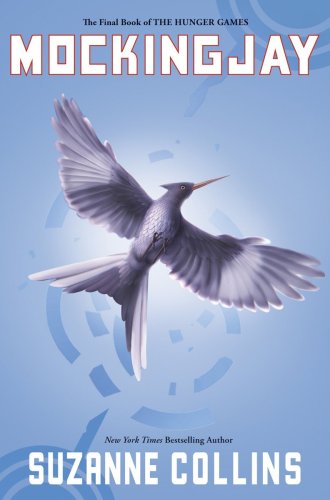All Nonfiction
- Bullying
- Books
- Academic
- Author Interviews
- Celebrity interviews
- College Articles
- College Essays
- Educator of the Year
- Heroes
- Interviews
- Memoir
- Personal Experience
- Sports
- Travel & Culture
All Opinions
- Bullying
- Current Events / Politics
- Discrimination
- Drugs / Alcohol / Smoking
- Entertainment / Celebrities
- Environment
- Love / Relationships
- Movies / Music / TV
- Pop Culture / Trends
- School / College
- Social Issues / Civics
- Spirituality / Religion
- Sports / Hobbies
All Hot Topics
- Bullying
- Community Service
- Environment
- Health
- Letters to the Editor
- Pride & Prejudice
- What Matters
- Back
Summer Guide
- Program Links
- Program Reviews
- Back
College Guide
- College Links
- College Reviews
- College Essays
- College Articles
- Back
Mockingjay by Suzanne Collins
Mockingjay is powerful and enthralling, although much darker than its two predecessors, The Hunger Games and Catching Fire. Collins does not hold back as she describes the trauma and suffering of war, both physical and psychological, and its lasting impact that changes everyone and everything. She is not afraid to portray war for what it truly is—bitter, painful, and devastating, filled with nightmares that will never leave and scars that will never heal. The emotions in this novel were so raw that I found myself smiling when there was hope and crying when there was pain. Every word leaves you hanging and hungry for more.
Seventeen-year-old protagonist Katniss Everdeen remains a strong yet believable heroine throughout the novel, for even she has her flaws and breaking points in a world where pain, bloodshed, and loss are everywhere. The love triangle between herself, best friend Gale Hawthorne, and genuinely sweet Peeta Mellark does indeed resolve itself, albeit a little near the end of the story.
Mockingjay, which I devoured in a single sitting, is an immensely satisfying conclusion to The Hunger Games trilogy.
Similar Articles
JOIN THE DISCUSSION
This article has 0 comments.

